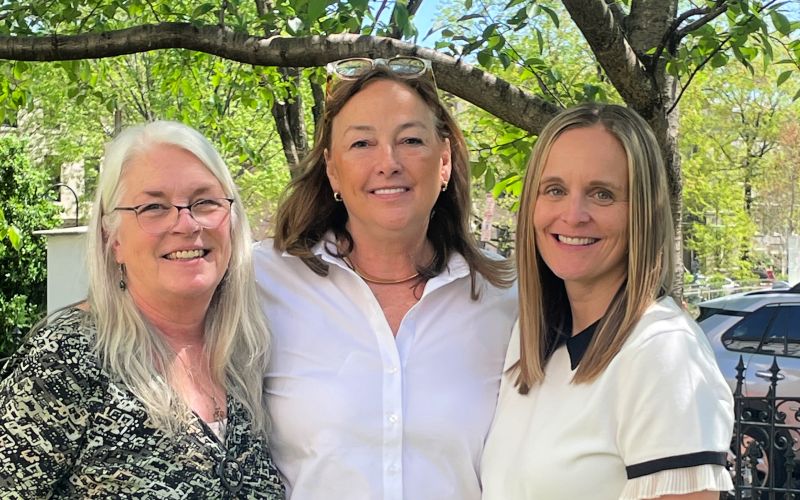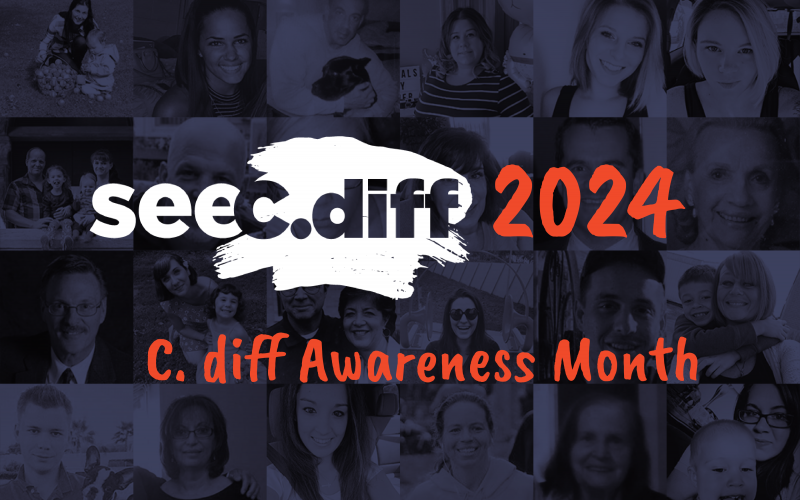Christian Lillis Interviews Dr. Wilson Jackson of Prebiotin
Other Categories
Christian John Lillis (CJL): Let’s start at the beginning—why focus on the microbiome?
Dr. Wilson Jackson: (WJ): While there is much more medical research to pursue, the microbiome is emerging as a vital component in both health and disease. Specifically, the interplay of the colonic flora is an area of rich research. For example, Crohn’s and ulcerative colitis are inflammatory diseases of the intestinal track. Patients with these disorders have less microbial diversity in their colon. Understanding why this difference exists may well enable us to better manage the disease. Methods to impact the microbiome, whether by diet or prebiotic and probiotic supplements, will likely have an impact on health and disease management.
CJL: We at the Peggy Lilli Foundation certainly understand the impact of an imbalance of colonic flora, often resulting from overuse of antibiotics. Can you tell us what happens when we don’t have a good balance of bacteria in our intestinal track?
WJ: Dysbiosis is the term applied to the unfavorable population of bacteria that may adversely affect a person’s health. The interplay that occurs at the level of the bacteria in the colon and cells that line the colon are at the center of understanding the microbiome. The cells that line the colon include part of our immune system. Other cells form “tight junctions” that help protect the barrier between the bacteria-rich lumen of the intestine and the sterile inner body. Think of tight junctions as the linked arms between cells. Dysbiosis we feel, may breakdown these tight junctions between cells and allow certain toxins into the blood stream.
CJL: Along with your practice as a gastroenterologist, you are also the medical director of Prebiotin, a company founded by your father, which manufactures a prebiotic supplement. How does this product fit into your work with dysbiosis? If you can start with a brief explanation of the difference between a prebiotic and a probiotic…
WJ: Probiotics are actual organisms [good bacteria]. Prebiotics are plant products that help promote the growth of favorable organisms. We all have the seeds in the soil so to speak. Think of prebiotics as the fertilizer that help a better microflora to take root.
Prebiotin is grounded in our most current and best understanding of the science behind prebiotics and the microbiome. The combination of inulin and fructo oligosaccharide [the major ingredients in Prebiotin] are the two most extensively studied fibers. DNA-based stool analyses have demonstrated their ability to favorably change the microflora. Prebiotin also has a product line that includes additional fiber supplements to further augment these positive changes.
CJL: Can you discuss some of the health benefits people might expect from enhancing their prebiotics and probitioics in their diet ?
WJ: We are still understanding the end-point health benefits of prebiotics, but they are potentially useful for a range of disorders. Some of these fall under the broad rubric of autoimmune disorders such as multiple sclerosis, Crohn’s disease, myasthenia gravis, and lupus. Other disease states where there may be health benefits from taking prebiotics are certain liver disorders, obesity management, perhaps even diabetes. The method by which prebiotics may complement conventional medical therapies for these diseases is still being understood.
CJL: What are the top ranked conditions you tend to see and treat?
WJ: We see a range of digestive disorders, including inflammatory bowel disease, liver disorders, reflux disease, Barrett’s esophagus, irritable bowel syndrome, pancreatic disorders, to name a few.
CJL: One microbiome-related illness that is of special interest to me is, of-course, Clostridium difficile infections or CDI. What can you tell us about this potentially deadly illness?
WJ: We have over 600 different species of bacteria in our gut, and C. diff is one of them, but it’s normally kept in check by the other bacteria. Antibiotic use can throw the whole balance off. As a result, C. difficile has become a major health problem. It is increasingly more common, and some years ago a more virulent strain emerged that made it more refractory to conventional therapy. Recurrent or refractory C. difficile, whereby the patient develops recurrent infection shortly after completing a conventional antibiotic-based treatment, has also become more prevalent.
CJL: What about treatment for CDI?
WJ: Fecal microbial transplantation (FMT) has been described in the past, but it was not seriously considered until the infection became more prevalent and refractory in the last few years. FMT now has a proven track record to treat C. diff, and the medical community is becoming increasingly aware as research trials are published.
CJL: Can you tell me about your own experience as a physician working with patients who have this recurrent or refractory CDI?
WJ: We began using fecal microbial transplantation about seven years ago and have had very good success, with cure rates of 90%. This article, Fecal transplant helps patient overcome hard-to-treat C. diff infection, describes our experience with one of our first FMT patients.
Our protocol is to place a patient on Prebiotin prior to FMT, and then at least three weeks following the procedure. We also add Prebiotin to the FMT slurry at the time of the transplant. Once cured, patients are potentially at risk for another infection if they are exposed to antibiotics in the future. We advise staying on Prebiotin to reduce the likelihood of C. Diff recurring. FMT also shows promise of helping patients with ulcerative colitis and Crohn’s colitis.
CJL: What other nutritional and lifestyle changes do you recommend for patients with these conditions?
WJ: We recommend a more plant-based diet, with reduction of processed foods. There are many ways to incorporate healthy eating habits. As a rule, selecting foods on the perimeter of the grocery store—for example fresh fruits and vegetables, unprocessed meats, and fish—will further promote a healthy microflora.
As a species, humans evolved primarily as hunter and gatherers eating a largely plant-based diet. In the arc of evolution, our modern style of eating from fields harvested for us, eating reared livestock, and manufactured and processed food, is a very small fragment of that evolutional time that goes back a million years. Yet our microflora has changed in response to our more modern eating habits. Including foods and supplments high in pre- and pro-biotics are good practices to promote one’s future health.
CJL: Do you think patients are open to taking a more natural approach to prevention and management of illness?
WJ: Patients have long had a desire to explore alternative and complementary treatments, whether for GI or other disorders. With the advent of advanced testing to study the microbiome, we are now better able to measure the impact of products such as Prebiotin on disease management.
CJL: What do you see as the future of microbiome-related research?
WJ: We are at an exciting time in appreciating the microbiome. We will want to remain at the forefront of understanding how the microbiome impacts health and disease. Historically, the microbiome was dismissed as an end-product repository, with little role in our health and minimal potential for disease management.
With the recent development of the ability to study the organisms and their DNA that make up the microbiome, we are at the beginning of what may prove a revolution in disease and health management. Better understanding of the interplay between the microbiome and our health will enable us to educate the medical community and impact patient care, since it is likely that the ability to test the microbiome will become more common and accessible to the point-of-care between the physician and patient.
Wilson Jackson, MD, FACP, FACG, AGAF
This post was written by Wilson Jackson, MD, board certified in internal medicine and gastroenterology/hepatology, with a practice in the Harrisburg, PA area. The son of Prebiotin™ founder, Dr. Frank Jackson, Dr. Jackson has followed in his father’s footsteps, becoming a gastroenterologist and inventor himself and serves as the Medical Director at Prebiotin™.
Graduating from Northwestern University in Chicago as an MD, he completed a residency in internal medicine at Northwestern Memorial Hospital, and a fellowship in gastroenterology and hepatology at Thomas Jefferson University in Philadelphia.
He has particular interest in Crohn’s disease, ulcerative colitis, and eosinophilic esophagitis, and has written an iPhone app on the latter— EoE Tracker (www.i-gastro.net) to help educate and manage patients with eosinophilic esophagitis. You can learn more about Dr. Jackson and Prebiotin at https://www.prebiotin.com/about-us/wilson-f-jackson/.



Leave a Reply